The Heart Bypass Surgery Cost in Indiaranges from GBP 0 ( -)
.There are few techniques in CABG Surgery for the standard approach through a midline sternotomy. In this the conventional & traditional techniques arrest the heart with cardioplegia, using Cardiopulmonary Bypass whereas minimally invasive cardiac surgery is done by making small incisions in the right side of the chest to reach the heart between the ribs. Cost estimation of Heart Bypass surgery techniques is as followed:
| Type of Heart Bypass Surgery | Approximate Bypass Surgery Cost in India |
|---|---|
| Conventional coronary artery bypass surgery | USD 2700 - USD 5500 |
| Traditional CABG Surgery | USD 4000 - USD 5000 |
| Minimally-invasive coronary artery bypass surgery | USD 6000 - USD 7000 |
Coronary artery bypass grafting (CABG) is a major cardiac surgery conducted on patients with severe coronary heart disease (CHD) or coronary artery disease (CAD). This procedure intends to improve the flow of blood to the cardiac muscles by bypassing the area of an obstructed coronary artery. A CAD is characterized by the deposition of waxy substances inside the coronary artery. The waxy substance forms plaques, which may restrict the flow of blood through the artery that supplies blood.
| City | Minimum Cost (USD) | Minimum Cost (INR) | Maximum Cost (USD) | Maximum Cost (INR) |
|---|---|---|---|---|
| Noida | USD 5000 | 415750 | USD 6000 | 498900 |
| Chennai | USD 5000 | 415750 | USD 6000 | 498900 |
| Mohali | USD 4500 | 374175 | USD 5400 | 449010 |
| Pune | USD 4500 | 374175 | USD 5400 | 449010 |
| Mumbai | USD 5000 | 415750 | USD 6000 | 498900 |
| Faridabad | USD 4500 | 374175 | USD 5400 | 449010 |
| Ahmedabad | USD 4500 | 374175 | USD 5400 | 449010 |
| Country | Minimum Cost | Minimum Local Currency | Maximum Cost | Maximum Local Currency |
|---|---|---|---|---|
| India | USD 5000 | INR 415750 | USD 6000 | INR 498900 |
| Thailand | USD 12000 | THB 427800 | USD 25000 | THB 891250 |
| Turkey | USD 5000 | TRY 150700 | USD 14000 | TRY 421960 |
| United Arab Emirates | USD 10000 | AED 36700 | USD 30000 | AED 110100 |
Treatment cost

MediGence is offering immense facilities for your medical journey such as:
We provide packages at economical prices with a number of additional benefits which make it a better opportunity than spending actual hospital costs with singular benefits. Coronary artery bypass grafting (CABG) betters blood flow to the heart. It is a treatment option for a patient who has been suffering from Coronary Heart Disease. Coronary Heart Disease or Coronary Artery Disease in which plaque can add on within the coronary arteries reducing the oxygen-rich blood supply to the heart. In CABG a healthy vein or artery anywhere else from the body is connected to or grafted to the coronary artery which is blocked which bypasses the blocked part., We have outstanding options with all kinds of benefits for you to get the CABG surgery done in Sarvodaya Hospital and Research Centre, India.

We provide numerous services for your medical journey, including:
With us, you are sure to receive all the benefits at competitive prices which is a better choice than paying actual hospital costs. Coronary artery bypass grafting (CABG) betters blood flow to heart. It is a treatment option for a patient who has been suffering from Coronary Heart Disease. Coronary Heart Disease or Coronary Artery Disease in which plaque can add on within the coronary arteries reducing the oxygen rich blood supply to heart. In CABG a healthy vein or artery anywhere else from the body is connected to or grafted to the coronary artery which is blocked which bypasses the blocked part., We have outstanding options with all kinds of benefits for you to get the CABG surgery done in Fortis Hospital, Shalimar Bagh, India.

Types of Coronary Artery Bypass Grafting (CABG) in Sarvodaya Hospital and Research Centre and its associated cost
| Treatment Option | Approximate Cost Range (USD) | Approximate Cost Range (INR) |
|---|---|---|
| CABG (Overall) | 4265 - 15699 | 350161 - 1287758 |
| On-Pump CABG | 4308 - 7638 | 352290 - 623302 |
| Off-Pump CABG | 5091 - 8604 | 416820 - 707960 |
| Minimally Invasive CABG | 7599 - 12228 | 621846 - 994341 |
| Robot-Assisted CABG | 10182 - 15178 | 836316 - 1251489 |
| Redo CABG | 7606 - 12173 | 623475 - 997285 |
DOCTORS IN 14 SPECIALITIES
FACILITIES & AMENITIES
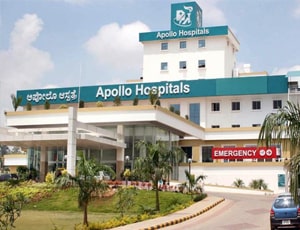
Types of Coronary Artery Bypass Grafting (CABG) in Apollo Hospitals Bannerghatta and its associated cost
| Treatment Option | Approximate Cost Range (USD) | Approximate Cost Range (INR) |
|---|---|---|
| CABG (Overall) | 4653 - 17173 | 395287 - 1435927 |
| On-Pump CABG | 4815 - 8564 | 399417 - 676639 |
| Off-Pump CABG | 5699 - 9520 | 455232 - 800439 |
| Minimally Invasive CABG | 8310 - 13554 | 678019 - 1091626 |
| Robot-Assisted CABG | 11152 - 16871 | 906577 - 1377915 |
| Redo CABG | 8616 - 13343 | 688430 - 1105623 |
DOCTORS IN 13 SPECIALITIES
FACILITIES & AMENITIES
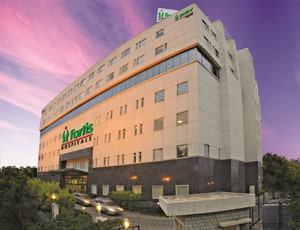
Types of Coronary Artery Bypass Grafting (CABG) in Fortis Hospital and its associated cost
| Treatment Option | Approximate Cost Range (USD) | Approximate Cost Range (INR) |
|---|---|---|
| CABG (Overall) | 4262 - 15711 | 349493 - 1284511 |
| On-Pump CABG | 4304 - 7599 | 354354 - 621824 |
| Off-Pump CABG | 5075 - 8632 | 416022 - 707842 |
| Minimally Invasive CABG | 7636 - 12240 | 624466 - 997950 |
| Robot-Assisted CABG | 10190 - 15274 | 831195 - 1248331 |
| Redo CABG | 7622 - 12218 | 621909 - 1002900 |
DOCTORS IN 12 SPECIALITIES
FACILITIES & AMENITIES

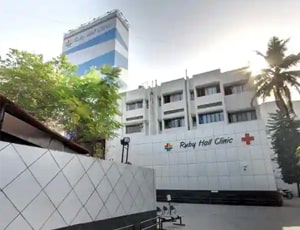
Types of Coronary Artery Bypass Grafting (CABG) in Ruby Hall Clinic and its associated cost
| Treatment Option | Approximate Cost Range (USD) | Approximate Cost Range (INR) |
|---|---|---|
| CABG (Overall) | 3886 - 14327 | 320343 - 1177830 |
| On-Pump CABG | 3973 - 7037 | 322049 - 567376 |
| Off-Pump CABG | 4744 - 8071 | 386500 - 653569 |
| Minimally Invasive CABG | 7064 - 11072 | 584150 - 917734 |
| Robot-Assisted CABG | 9325 - 14023 | 755747 - 1133774 |
| Redo CABG | 7097 - 11045 | 569047 - 923886 |
DOCTORS IN 13 SPECIALITIES
FACILITIES & AMENITIES
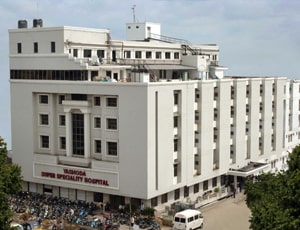
Types of Coronary Artery Bypass Grafting (CABG) in Yashoda Hospital, Malakpet and its associated cost
| Treatment Option | Approximate Cost Range (USD) | Approximate Cost Range (INR) |
|---|---|---|
| CABG (Overall) | 4262 - 15687 | 349487 - 1296130 |
| On-Pump CABG | 4305 - 7600 | 352653 - 621913 |
| Off-Pump CABG | 5088 - 8610 | 417503 - 708487 |
| Minimally Invasive CABG | 7609 - 12231 | 625840 - 1000550 |
| Robot-Assisted CABG | 10167 - 15256 | 830505 - 1253530 |
| Redo CABG | 7601 - 12132 | 621787 - 994820 |
DOCTORS IN 10 SPECIALITIES
FACILITIES & AMENITIES
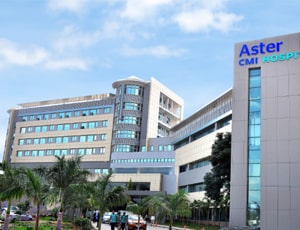
Types of Coronary Artery Bypass Grafting (CABG) in Aster CMI Hospital and its associated cost
| Treatment Option | Approximate Cost Range (USD) | Approximate Cost Range (INR) |
|---|---|---|
| CABG (Overall) | 4265 - 15785 | 349188 - 1287399 |
| On-Pump CABG | 4330 - 7598 | 353309 - 624901 |
| Off-Pump CABG | 5066 - 8585 | 415430 - 705243 |
| Minimally Invasive CABG | 7629 - 12201 | 622898 - 1001544 |
| Robot-Assisted CABG | 10165 - 15237 | 829485 - 1250598 |
| Redo CABG | 7630 - 12199 | 626277 - 996775 |
DOCTORS IN 13 SPECIALITIES
FACILITIES & AMENITIES
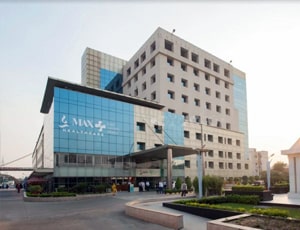
Types of Coronary Artery Bypass Grafting (CABG) & Its Cost at Max Super Specialty Hospital, Vaishali
| Treatment Option | Approximate Cost Range (USD) | Approximate Cost Range (INR) |
|---|---|---|
| Traditional CABG | 5,900 - 6,020 | 483800 - 493640 |
| Off-pump CABG | 5,700 - 5,820 | 467400 - 477240 |
| Minimally Invasive CABG | 5,800 - 5,920 | 475600 - 485440 |
| Robotic-Assisted Coronary Bypass | 5,600 - 5,720 | 459200 - 469040 |
Factors affecting Coronary Artery Bypass Grafting (CABG) cost in Max Super Specialty Hospital, Vaishali
| Cost Factors | Cost Range (USD) | Cost Range (INR) |
|---|---|---|
| Initial Consultation Fees | 150 - 200 | 12300 - 16400 |
| Surgeon's Fees | 1,800 - 2,000 | 147600 - 164000 |
| Anesthesia Fees | 750 - 850 | 61500 - 69700 |
| Diagnostic Tests | 550 - 650 | 45100 - 53300 |
| Post-Surgery Care | 350 - 450 | 28700 - 36900 |
| Room Charges (Per Day) | 180 - 280 | 14760 - 22960 |
| Operating Room Charges | 1,200 - 1,300 | 98400 - 106600 |
| Nursing Care Charges | 250 - 350 | 20500 - 28700 |
| Laboratory Fees | 180 - 280 | 14760 - 22960 |
| Diagnostic Imaging Fees | 280 - 380 | 22960 - 31160 |
| Medications | 180 - 280 | 14760 - 22960 |
| Supplies | 100 - 200 | 8200 - 16400 |
DOCTORS IN 14 SPECIALITIES
FACILITIES & AMENITIES
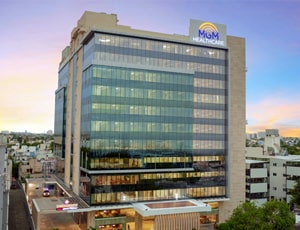
Types of Coronary Artery Bypass Grafting (CABG) in MGM Healthcare and its associated cost
| Treatment Option | Approximate Cost Range (USD) | Approximate Cost Range (INR) |
|---|---|---|
| CABG (Overall) | 4253 - 15656 | 348152 - 1288609 |
| On-Pump CABG | 4294 - 7581 | 355122 - 621477 |
| Off-Pump CABG | 5057 - 8659 | 415184 - 706351 |
| Minimally Invasive CABG | 7630 - 12209 | 623491 - 995815 |
| Robot-Assisted CABG | 10141 - 15266 | 833843 - 1252919 |
| Redo CABG | 7595 - 12155 | 624580 - 1000274 |
DOCTORS IN 13 SPECIALITIES
FACILITIES & AMENITIES
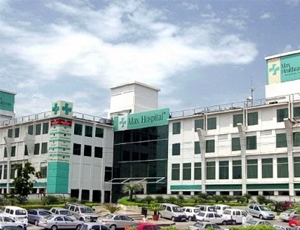
Types of Coronary Artery Bypass Grafting (CABG) & Its Cost at Max Hospital, Gurgaon
| Treatment Option | Approximate Cost Range (USD) | Approximate Cost Range (INR) |
|---|---|---|
| Traditional CABG | 6,600 - 6,800 | 541200 - 557600 |
| Off-pump CABG | 6,450 - 6,650 | 528900 - 545300 |
| Minimally Invasive CABG | 6,500 - 6,700 | 533000 - 549400 |
| Robotic-Assisted Coronary Bypass | 6,350 - 6,550 | 520700 - 537100 |
Factors affecting Coronary Artery Bypass Grafting (CABG) cost in Max Hospital, Gurgaon
| Cost Factors | Cost Range (USD) | Cost Range (INR) |
|---|---|---|
| Initial Consultation Fees | 200 - 240 | 16400 - 19680 |
| Surgeon's Fees | 2,200 - 2,400 | 180400 - 196800 |
| Anesthesia Fees | 1,000 - 1,200 | 82000 - 98400 |
| Diagnostic Tests | 700 - 800 | 57400 - 65600 |
| Post-Surgery Care | 500 - 600 | 41000 - 49200 |
| Room Charges (Per Day) | 350 - 450 | 28700 - 36900 |
| Operating Room Charges | 1,600 - 1,800 | 131200 - 147600 |
| Nursing Care Charges | 400 - 500 | 32800 - 41000 |
| Laboratory Fees | 350 - 450 | 28700 - 36900 |
| Diagnostic Imaging Fees | 450 - 550 | 36900 - 45100 |
| Medications | 350 - 450 | 28700 - 36900 |
| Supplies | 250 - 350 | 20500 - 28700 |
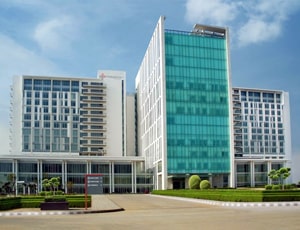
Types of Coronary Artery Bypass Grafting (CABG) in Medanta - The Medicity and its associated cost
| Treatment Option | Approximate Cost Range (USD) | Approximate Cost Range (INR) |
|---|---|---|
| CABG (Overall) | 4639 - 17356 | 380555 - 1442901 |
| On-Pump CABG | 4772 - 8478 | 386918 - 696773 |
| Off-Pump CABG | 5614 - 9564 | 464477 - 796524 |
| Minimally Invasive CABG | 8375 - 13605 | 706670 - 1093653 |
| Robot-Assisted CABG | 11119 - 17119 | 935709 - 1372632 |
| Redo CABG | 8510 - 13618 | 706777 - 1108570 |
DOCTORS IN 14 SPECIALITIES
FACILITIES & AMENITIES
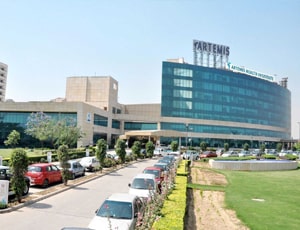
Types of Coronary Artery Bypass Grafting (CABG) in Artemis Health Institute and its associated cost
| Treatment Option | Approximate Cost Range (USD) | Approximate Cost Range (INR) |
|---|---|---|
| CABG (Overall) | 4790 - 17252 | 381574 - 1449205 |
| On-Pump CABG | 4756 - 8253 | 389368 - 684366 |
| Off-Pump CABG | 5570 - 9450 | 463186 - 792205 |
| Minimally Invasive CABG | 8357 - 13414 | 688416 - 1116326 |
| Robot-Assisted CABG | 11044 - 16955 | 919848 - 1378518 |
| Redo CABG | 8512 - 13552 | 680363 - 1103649 |
DOCTORS IN 15 SPECIALITIES
FACILITIES & AMENITIES
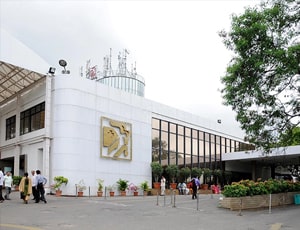
Types of Coronary Artery Bypass Grafting (CABG) in Apollo Hospitals and its associated cost
| Treatment Option | Approximate Cost Range (USD) | Approximate Cost Range (INR) |
|---|---|---|
| CABG (Overall) | 4818 - 17314 | 379211 - 1454836 |
| On-Pump CABG | 4835 - 8339 | 398744 - 695371 |
| Off-Pump CABG | 5733 - 9491 | 468789 - 774678 |
| Minimally Invasive CABG | 8319 - 13499 | 700756 - 1124393 |
| Robot-Assisted CABG | 11194 - 16807 | 904967 - 1354681 |
| Redo CABG | 8570 - 13302 | 701308 - 1111267 |
DOCTORS IN 14 SPECIALITIES
FACILITIES & AMENITIES
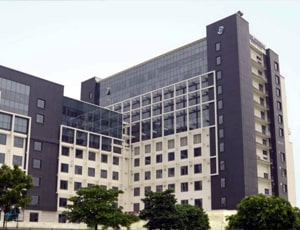
Types of Coronary Artery Bypass Grafting (CABG) in Venkateshwar Hospital and its associated cost
| Treatment Option | Approximate Cost Range (USD) | Approximate Cost Range (INR) |
|---|---|---|
| CABG (Overall) | 4271 - 15764 | 348541 - 1295271 |
| On-Pump CABG | 4324 - 7634 | 355034 - 623088 |
| Off-Pump CABG | 5062 - 8616 | 416591 - 704253 |
| Minimally Invasive CABG | 7646 - 12163 | 622641 - 995403 |
| Robot-Assisted CABG | 10141 - 15275 | 835523 - 1243073 |
| Redo CABG | 7648 - 12230 | 626336 - 1001298 |
DOCTORS IN 13 SPECIALITIES
FACILITIES & AMENITIES
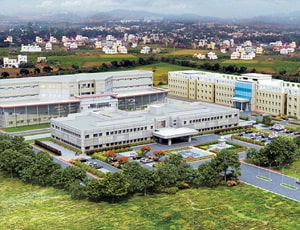
Types of Coronary Artery Bypass Grafting (CABG) in Global Health City and its associated cost
| Treatment Option | Approximate Cost Range (USD) | Approximate Cost Range (INR) |
|---|---|---|
| CABG (Overall) | 4706 - 17381 | 387205 - 1400732 |
| On-Pump CABG | 4703 - 8431 | 384313 - 693686 |
| Off-Pump CABG | 5729 - 9398 | 466759 - 784066 |
| Minimally Invasive CABG | 8424 - 13539 | 702097 - 1094977 |
| Robot-Assisted CABG | 11383 - 16782 | 903237 - 1407218 |
| Redo CABG | 8254 - 13542 | 699216 - 1096455 |
DOCTORS IN 14 SPECIALITIES
FACILITIES & AMENITIES
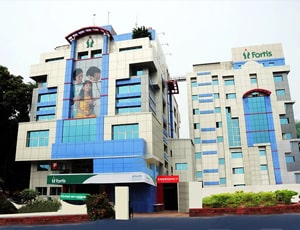
Types of Coronary Artery Bypass Grafting (CABG) in Fortis Malar Hospital and its associated cost
| Treatment Option | Approximate Cost Range (USD) | Approximate Cost Range (INR) |
|---|---|---|
| CABG (Overall) | 4247 - 15782 | 350101 - 1295476 |
| On-Pump CABG | 4323 - 7580 | 352323 - 625477 |
| Off-Pump CABG | 5068 - 8600 | 416059 - 706542 |
| Minimally Invasive CABG | 7624 - 12196 | 627122 - 1003375 |
| Robot-Assisted CABG | 10196 - 15292 | 835910 - 1249488 |
| Redo CABG | 7601 - 12127 | 623324 - 998601 |
DOCTORS IN 9 SPECIALITIES
FACILITIES & AMENITIES
Coronary artery bypass grafting (CABG) is a type of an open heart surgery that intends to improve the flow of blood to the heart. It involves the placement of a coronary artery bypass graft, which is retrieved from a healthy artery in the body, and placed in the position of the blocked portion of the artery that supplies blood to the heart. CABG surgery is a complex, yet common procedure.
A waxy substance called plaque may deposit in good amount in the coronary arteries of the heart over a period of time. As time advances, the plaque starts hardening and eventually ruptures and breaks open. The plaque interferes with blood flow as arteries grow narrow at the affected region. A blood clot develops when the plaque ruptures. The artery may get blocked completely is the size of the clot is big enough to stop the flow of blood to the heart. This may eventually lead to serious events such as heart attack and also put the individual at the risk of death.
The person may experience chest pain and discomfort when the heart is deprived of rich oxygenated blood This pain is referred to as angina. Breathlessness and fatigue are some of the other problems associated with coronary heart disease.
Coronary artery bypass surgery aims at improving the overall blood circulation to the heart. A part of healthy artery or vein from another part of the body is taken and is grafted or connected to the blocked coronary artery for bypass. This artery or vein goes around the blocked portion of the coronary artery and establishes a new path for the blood to flow to the heart, thus reducing the chance of a heart attack. In a single surgery, surgeons can bypass multiple coronary arteries. Severe blockages can be treated with this procedure.
CABG is conducted when there are one or two blockages in the artery. High risk CABG is conducted when there are multiple blockages in the artery and the blood flow to the heart is severely restricted.
There are two approaches to conduct CABG – open heart surgery and laparoscopic bypass heart surgery. The latter is a type of minimally invasive heart bypass surgery, which involves the creation of smaller incisions. This results in minimum discomfort and complications and allows for faster recovery and healing.
Laparoscopic bypass heart surgery is mostly preferred when there is not much blockage in the coronary artery. Open heart surgery, on the other hand, is conducted in complicated cases. High-risk CABG is mostly conducted as an open heart surgical procedure.
Patients are transferred to the ICU right after the surgery and shifted to the patient ward a day later. Heart rhythm disturbances are discovered in 25 percent of the patients within a period of 3 or 4 days after the surgery. They are temporary atrial fibrillations associated with surgical trauma. Such patients respond well to standard medical therapies.
They can be weaned within a period of a month after the surgery. From one week to one day, the range of stay in the hospital may vary from one patient to the other. Young patients are usually discharged within two days. The recovery time can be very long and the range of physical activities must be kept to a minimum.
Ask your healthcare adviser for the best multiple options and choose the one that meets your expectations
The cost of Coronary Artery Bypass Grafting (CABG) in India starts from USD$ 4200. In India, Coronary Artery Bypass Grafting (CABG) is conducted across many multispecialty hospitals.
The cost of Coronary Artery Bypass Grafting (CABG) in India may differ from one medical facility to the other. The Coronary Artery Bypass Grafting (CABG) package cost usually includes all the expenses related to pre and post surgery expenses of the patient. The Coronary Artery Bypass Grafting (CABG) cost in India includes the cost of anesthesia, medicines, hospitalization and the surgeon's fee. Extended hospital stay, complications after the surgery or new diagnosis may affect the overall cost of Coronary Artery Bypass Grafting (CABG) in India.
There are about 59 Coronary Artery Bypass Grafting (CABG) hospitals in India that are best known for their services. Apart from good services, the hospitals are known to follow all standard and legal guidelines as dictated by the local medical affairs body or organization. For quick reference, the following are some of the leading hospitals for Coronary Artery Bypass Grafting (CABG) in India:
After discharge from the hospital, the patient has to stay for another 21 days in the country for complete recovery. During this time, the patient undergoes medical tests and consultations. this is to ensure that the treatment was successful and the patient us safe to return.
One of the topmost destinations for Coronary Artery Bypass Grafting (CABG) is India. It has a variety of accredited hospitals, affordable cost of treatment and some of the best medical fraternity. Some of the other destinations that are popular for Coronary Artery Bypass Grafting (CABG) include the following:
There are certain expenses additional to the Coronary Artery Bypass Grafting (CABG) cost that the patient may have to pay for. These are the charges for daily meals and hotel stay outside the hospital. The extra charges may vary average around USD$ 25.
The patient is supposed to stay at the hospital for about 5 days after Coronary Artery Bypass Grafting (CABG) for monitoring and care. The doctors team review the patient's recovery during this time with the help of blood tests and imaging scans. Once they feel that everything is on track, the patient is discharged.
The overall rating for hospitals providing Coronary Artery Bypass Grafting (CABG) in India is 5.0. Several parameters such as hospital infrastructure, pricing policy, quality of services, politeness of staff etc. contribute to the rating.
Bypass surgery in India, also known as coronary artery bypass grafting (CABG), is conducted on patients with severe coronary heart disease (CHD) or coronary artery disease (CAD). The surgery is conducted to improve the flow of blood to the cardiac muscles. The area of obstruction is bypassed to restore the normal blood flow. There are many reasons why one should prefer to undergo heart surgery in India. Some of these reasons include the following:
There are many internationally accredited hospitals that conduct bypass surgery in India. Some of these hospitals are located in the top cities for bypass surgery in India, including Delhi, Mumbai, Chennai, Pune, Hyderabad, and Bangalore. Some of the best hospitals for CABG in India include the following:
The best cardiologists in India are globally renowned for their skills, experience, and success rates. A majority of cardiac surgeons in India are trained and educated at some of the most premier medical institutes in the world. They attend conferences, seminars, and training around the year to keep themselves updated as per the changing and latest technology in the field of cardiac treatment. Some of the best heart surgeons in India include the following:
The success rate of CABG in India is one of the best in the world. The current success rate of CABG is estimated to be around more than 95 percent in India. The high CABG success rate in India can be attributed to the quality of treatment and the skills and expertise of the performing surgeons. India is a globally-renowned for its brigade of cardiac surgeons, a majority of whom are trained from abroad. They remain abreast of the latest technology in the world of cardiac treatment. However, how successful bypass surgery will actually depend on several factors, including the following: